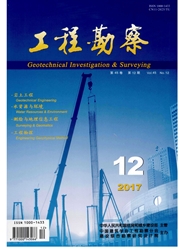

 中文摘要:
中文摘要:
广播星历误差直接影响卫星定位的精度,对GPS和GLONASS的广播星历精度进行对比分析,可为组合定位中观测值定权提供依据。为此,以NGA和IAC精密星历为参考,分析了连续两周GPS和GLONASS健康广播星历的轨道和钟差精度,结果表明,目前GPS广播星历轨道空间信号误差(SISRE)优于0.8m,钟差均方根误差在7ns以内,GLONASS广播星历轨道SISRE优于1.5m,钟差均方根误差在15ns以内;同样以SISRE为指标,得出GPS广播星历整体精度优于2m,GLONASS优于5m,建议组合系统定权时可将GPS和GLONASS广播星历先验精度分别设为2m和5m。
 英文摘要:
英文摘要:
As errors introduced by broadcast ephemeris directly impact me accurauy ~,* t' ~' accuracy comparision of GPS and GLONASS's broadcast ephemeris may offer a basis for fixing the weight used in combination positioning. Two weeks' GPS and GLONASS healthy broadcast ephemeris are analysed with respect to the precise ephemeris downloaded from NGA and IAC respectively, the results show that the orbit only Signal-In-Space Ranging Error (SISRE) of GPS recently is better than 0.8m and clock offsets Root-Mean Squared Error (RMSE) is below 7ns; while the corresponding indicators of GLONASS are better than 1.5m and 15ns. A comparison on SISRE considering both orbit and clock offsets is also taken and the results show that GPS is better than 2m and GLONASS is better than 5m.
 同期刊论文项目
同期刊论文项目
 同项目期刊论文
同项目期刊论文
 期刊信息
期刊信息
